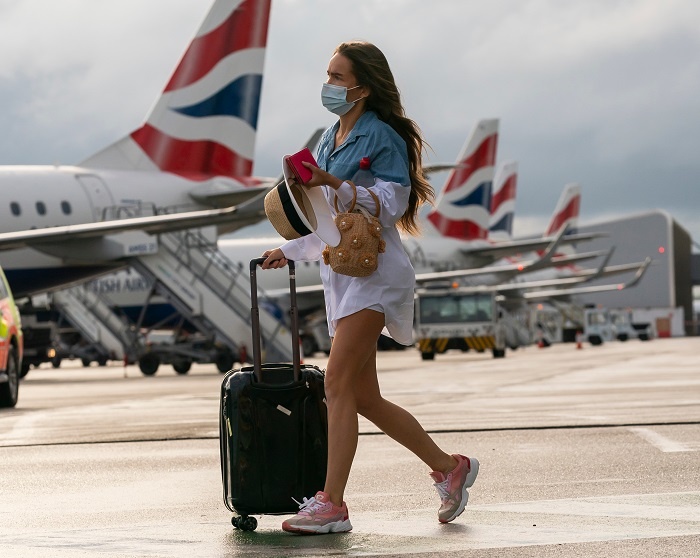
Which? warns over new scams as travel returns
Fraudsters are setting up bogus companies to sell imaginary flights and offering fake refunds to extract bank details and steal money as international travel reopens, Which? has warned.
The pandemic has provided new opportunities for fraudsters to exploit victims.
Covid-19-related scams spawned from rapidly-evolving travel rules; coupled with widespread desperation for holidays after months of lockdown, this has created the perfect conditions for cybercrime.
Even Brexit legislation has been leapt on by some unscrupulous traders as a chance to rip people off.
One of the cruellest scams has made victims out of people awaiting refunds for cancelled holidays.
Scammers are cold-calling travellers and impersonating airlines, travel agents and banks, claiming they need their bank details and personal information to process the refund.
But instead of doing so, they use this information to steal money from the customer, leaving them doubly out of pocket.
Which? has learnt of instances of fraudsters taking detailed steps to appear to be the business they are imitating, such as spoofing legitimate phone numbers and finding out booking details and exactly how much someone is owed.
A renewed appetite for holidays early in 2022 has left some families and individuals feeling under increasing pressure to secure their perfect getaway.
Rogue travel companies are selling fake flights and others are promoting some of the most popular stays with scam adverts on social media, offering apparent late or peak-season availability for holidays that appear to be sold out elsewhere, Which? research found.
ADVERTISEMENT
Customers are enticed to click through to a website where they book and pay for a holiday that doesn’t exist.
Some unfortunate customers do not realise they have been defrauded until they turn up at the airport or at their accommodation and find they are unable to check in.
The National Health Service has also been imitated by criminals.
The NHS App gives proof of vaccination which can be used to gain entry to some of the most popular holiday destinations.
An email, containing a link to a website that looks like an official NHS platform, invites people to apply for a digital vaccine passport.
The email is in fact a phishing scam to steal personal information.
As fraudsters move swiftly to exploit new opportunities, Which? is calling on online platforms, banks and telecoms companies to do more to ensure their systems aren’t being exploited to target victims.
Added essential travel paperwork which emerged from Covid-19 and Brexit has also been used by unscrupulous companies to con people out of their money.
Which? has seen firms charging travellers as much as $99 (£75) for passenger locator forms, which can be obtained from the government for free.
When Which? carried out searches in November, 19 non-governmental results were returned on the first two pages of Google alone – all charging a fee.
Some appeared as an ad or ranked higher than the gov.uk site.
Similarly, some companies are charging fees for the GHIC (Global Health Insurance Card), which is free and was introduced to replace the EHIC after Brexit.
Which? has also found opportunists selling international driving permits for Spain for $49 (£36.25) – despite the permits costing just £5.50 from the Post Office.
Rory Boland, editor of Which? Travel, said: “Criminals are exploiting the pandemic and the demand for holidays in a wide range of ways, laying new traps to trick unsuspecting travellers out of their money.
“Our advice for consumers is be wary of unsolicited calls and messages, and be cautious about holiday deals from unfamiliar firms.
“If you think you’ve been the victim of a scam, you should report this to Action Fraud and your bank.
“Anyone who is struggling to get their money back from their bank should contact the Financial Ombudsman Service to review their case.”

